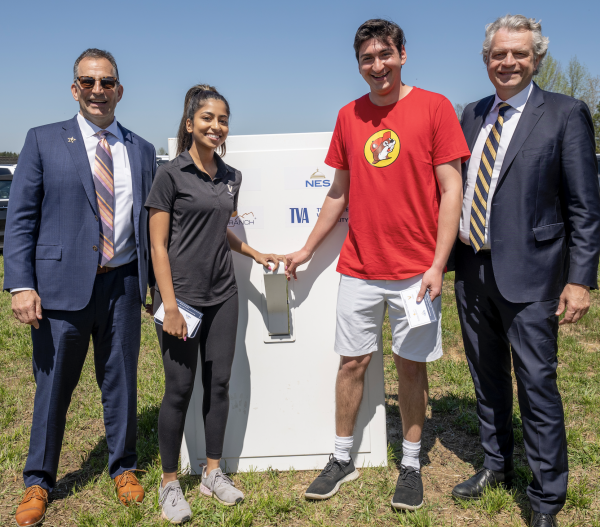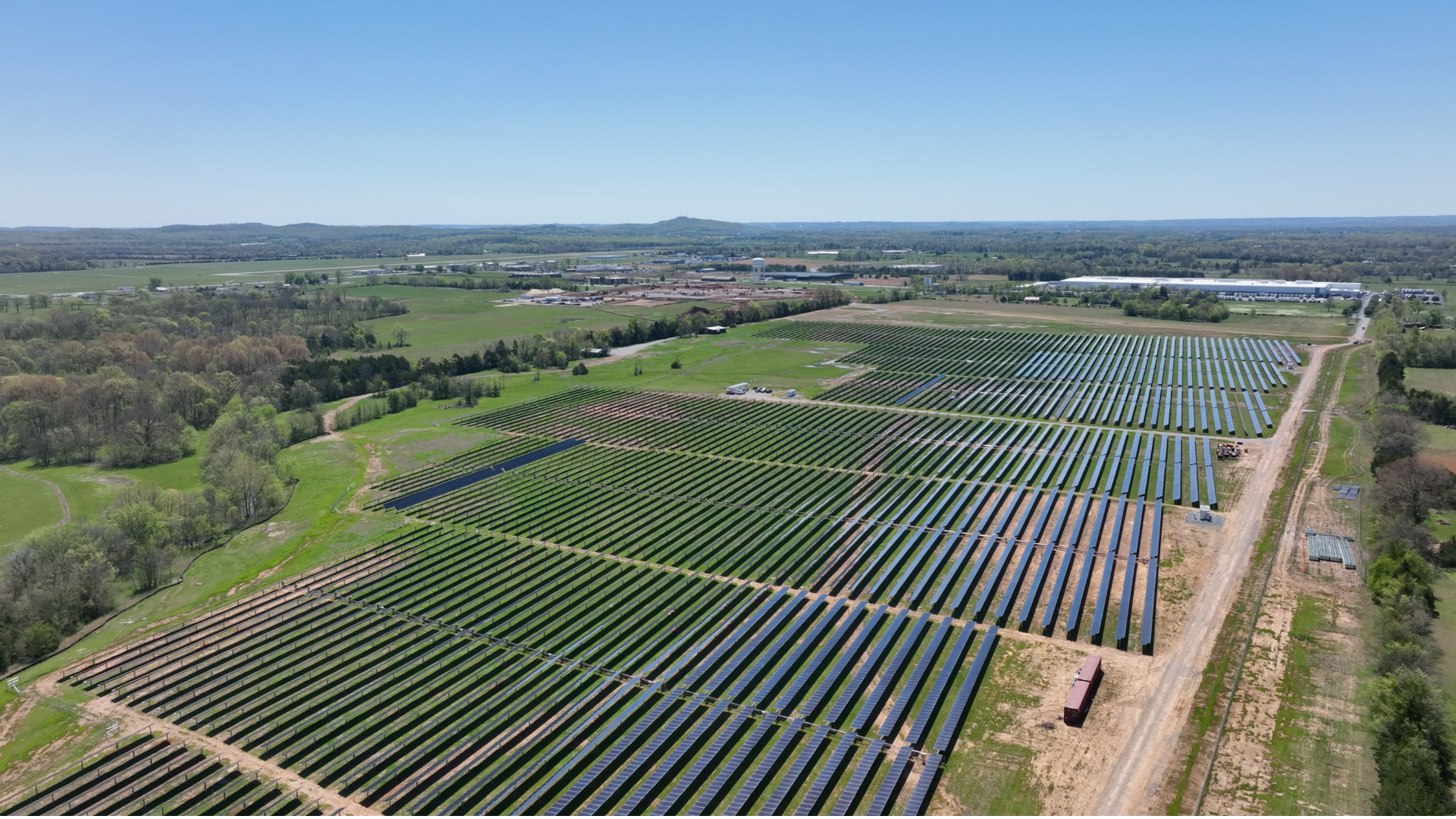Vanderbilt’s efforts in large-scale renewable energy are closely tied to the work of its alumni. Silicon Ranch co-founder and CEO Matt Kisber, BA’82, helped lead an important collaboration between his company and the university to build solar farms, which helped Vanderbilt achieve carbon neutrality years ahead of its original goal of 2050.
“Vanderbilt is a leading institution in a number of ways, but especially around sustainability,” Kisber said. “Vanderbilt has helped to innovate new programs and, in this instance, led the effort that created the TVA Green Invest program—the program TVA can use to foster its economic development mission here in the [Tennessee] Valley and to help create tens of millions of dollars of new capital investment.”
Kisber credits his time at Vanderbilt for assisting in his personal growth as a businessman and critical thinker.
“I am extremely proud of my years at Vanderbilt and being an alumnus of the university,” Kisber said. “I’ll often think back to some of the challenges the professors at Vanderbilt put before us in courses and try to put to work those skills in thinking about how we [would] put this company together.”
After graduating from Vanderbilt in 1982, Kisber served 10 consecutive terms in the Tennessee General Assembly. He then served in Gov. Phil Bredesen’s cabinet as commissioner of the Tennessee Department of Economic and Community Development, leading Tennessee’s efforts at recruiting new industry and supporting existing industries. Kisber first became interested in solar energy during that time, when he was tasked with developing a jobs strategy around the renewable energy sector. When Bredesen’s term ended, Kisber co-founded Silicon Ranch with state government colleague Reagan Farr, and Bredesen served as an advisor and as the company’s chairman.
The Vanderbilt ties to Silicon Ranch go beyond Kisber. Many employees at Silicon Ranch, and its subsidiary Clearloop, are Vanderbilt alumni, and both companies have welcomed current students as interns (some of whom return as employees after graduating).
The collaboration with Silicon Ranch is the one of several clean energy initiatives Vanderbilt has undertaken.

In April 2023, the university “flipped the switch” on the 35-megawatt Vanderbilt I Solar Farm in Bedford County, Tennessee, which was first announced in 2020. The location will offset approximately 70 percent of the university’s greenhouse gas emissions produced indirectly from electricity purchased from Nashville Electric Service and TVA. A planned second solar farm in Moore County, Tennessee, will supply enough renewable energy to mitigate the remaining 30 percent of these indirect emissions from purchased electricity.
Vanderbilt University will further offset its carbon footprint by investing in the development of solar energy projects that will expand access to clean energy in the Southeast. A new, multiyear collaboration with Clearloop builds on Vanderbilt’s commitment to powering its campus entirely through renewable energy and maintaining carbon neutrality.
- For more on Green Invest and Vanderbilt’s other sustainability efforts, visit vanderbilt.edu/sustainability
- Take a first look at the Vanderbilt I Solar Farm
- Learn more about Vanderbilt’s forward-thinking approach to large-scale renewable energy
- Read more about Matt Kisber’s career and personal story in this 2018 profile in Vanderbilt Magazine
- Interested in an internship with Silicon Ranch or Clearloop? Contact the Career Center.
